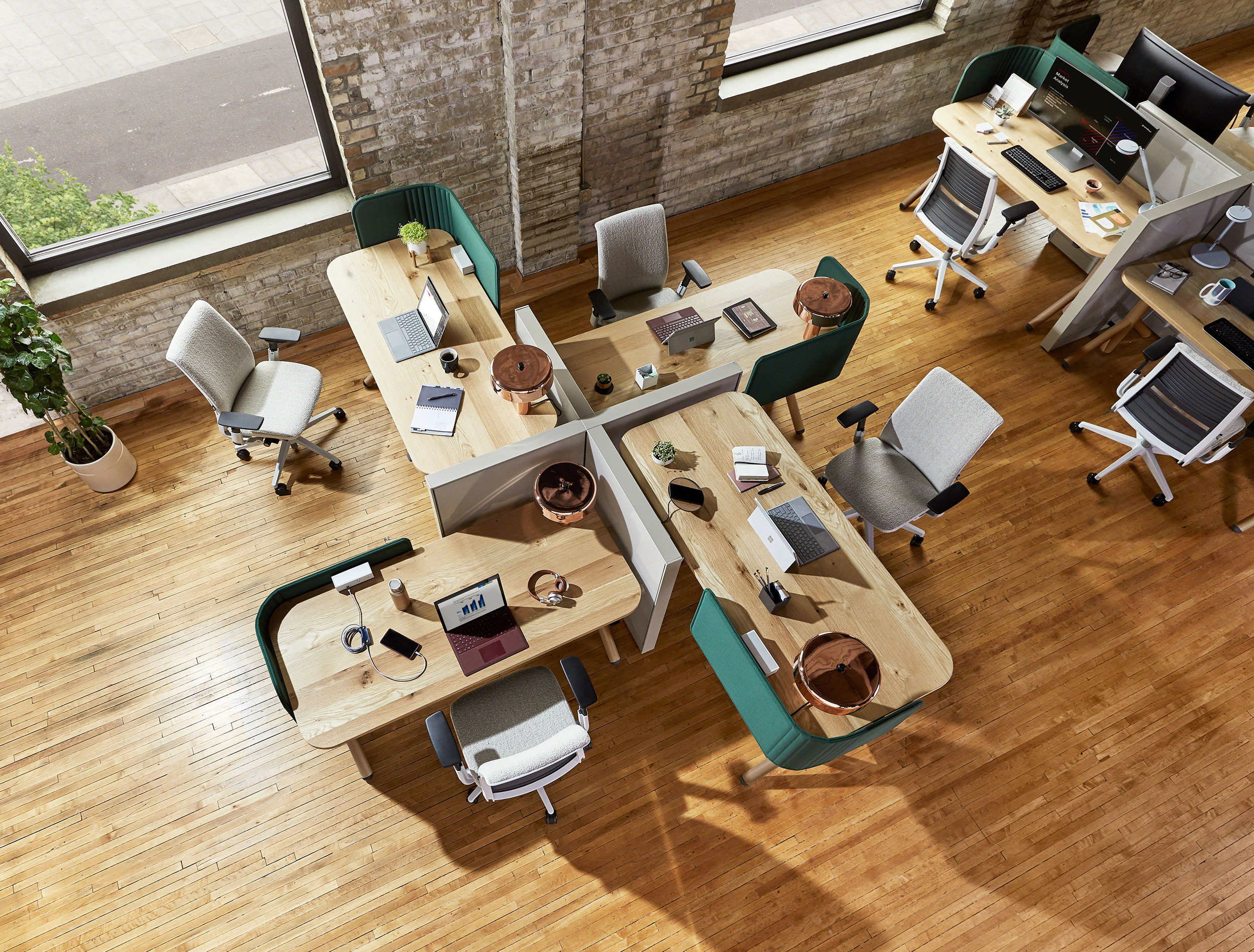
The Future Is Flexible: Modular Furniture For Changing Needs
In today's fast-paced world, where change is the only constant, our needs and preferences are constantly evolving. This has led to a growing demand for furniture that can adapt to our changing lifestyles. Traditional furniture designs often fall short in meeting these needs, which has given rise to the popularity of modular furniture.
What is modular furniture?
Modular furniture, as the name suggests, is designed with flexibility in mind. It consists of individual units or modules that can be combined and rearranged in various configurations to suit different spaces and purposes. These modules can be easily added, removed, or repositioned, allowing users to customize their furniture according to their specific needs.

The benefits of modular furniture
Modular furniture offers numerous advantages over traditional furniture designs. Here are some key benefits:
- Adaptability: The ability to rearrange modules allows the furniture to adapt to changing needs. Whether you move to a new home, have a growing family, or simply want a fresh look, modular furniture can easily accommodate these changes.
- Space efficiency: Modular furniture is designed to maximize space utilization. With its flexible configurations, it can fit into small or awkwardly shaped rooms, making it ideal for urban dwellers living in compact apartments.
- Customizability: Modular furniture offers endless possibilities for customization. Users can choose from a variety of modules, materials, colors, and finishes to create a personalized piece that reflects their style and preferences.
- Ease of assembly: Unlike traditional furniture, which often requires professional assembly or disassembly, modular furniture can be easily put together or taken apart by the users themselves. This makes it convenient for those who frequently move or like to change their furniture layout.
- Sustainability: Modular furniture is often designed with sustainability in mind. As it can be easily disassembled and reconfigured, it reduces the need for new furniture purchases, minimizing waste and contributing to a more environmentally friendly lifestyle.
Applications of modular furniture
The versatility of modular furniture makes it suitable for a wide range of applications. Here are some examples:
Residential spaces
Modular furniture is a popular choice for residential spaces, especially in urban areas where space is limited. It can be used to create multifunctional rooms, such as a living room that transforms into a guest bedroom or a home office that doubles as a dining area. The ability to customize the furniture to fit specific room dimensions makes it an excellent solution for maximizing space.

Office environments
Offices are another area where modular furniture shines. With the rise of remote work and flexible office arrangements, businesses are seeking furniture that can adapt to changing needs. Modular desks, partitions, and storage units allow for easy reconfiguration of workspaces, fostering collaboration and accommodating different work styles.
Public spaces
Modular furniture is increasingly being used in public spaces such as airports, shopping malls, and parks. Its flexibility allows for quick and easy adjustment to accommodate different events, exhibitions, or changing user needs. For example, modular seating arrangements can be reconfigured to create a cozy lounge area or an open space for events.
The future of modular furniture
As our lives continue to evolve and become more dynamic, the demand for modular furniture is expected to grow. With advancements in technology and design, we can expect even more innovative and functional modular furniture solutions in the future.
Here are some trends that are likely to shape the future of modular furniture:
- Smart functionality: Integration of smart technology into modular furniture, such as built-in wireless charging, voice control, and adjustable lighting, will enhance the user experience and convenience.
- Sustainable materials: The use of eco-friendly materials, such as recycled plastics or sustainable wood alternatives, will become more prevalent in modular furniture designs, aligning with the growing emphasis on sustainability.
- Modularity beyond furniture: Modularity will extend beyond furniture to other aspects of interior design, such as modular walls, flooring, and lighting systems. This will offer greater flexibility and adaptability in creating customized spaces.
- 3D printing: The advent of 3D printing technology will enable the production of highly customizable and intricate modular furniture designs. This will revolutionize the manufacturing process and allow for unique, personalized creations.

Conclusion
Modular furniture is revolutionizing the way we think about interior design. Its adaptability, space efficiency, customizability, and ease of assembly make it a practical and versatile choice for a wide range of applications. As we embrace a more flexible and dynamic lifestyle, modular furniture is set to become an integral part of our future. With ongoing advancements in technology and design, the possibilities for modular furniture are endless.
Whether it's in our homes, offices, or public spaces, modular furniture offers a solution that can adapt to our ever-changing needs. As we move towards a more sustainable and personalized future, modular furniture is paving the way for a new era of interior design.